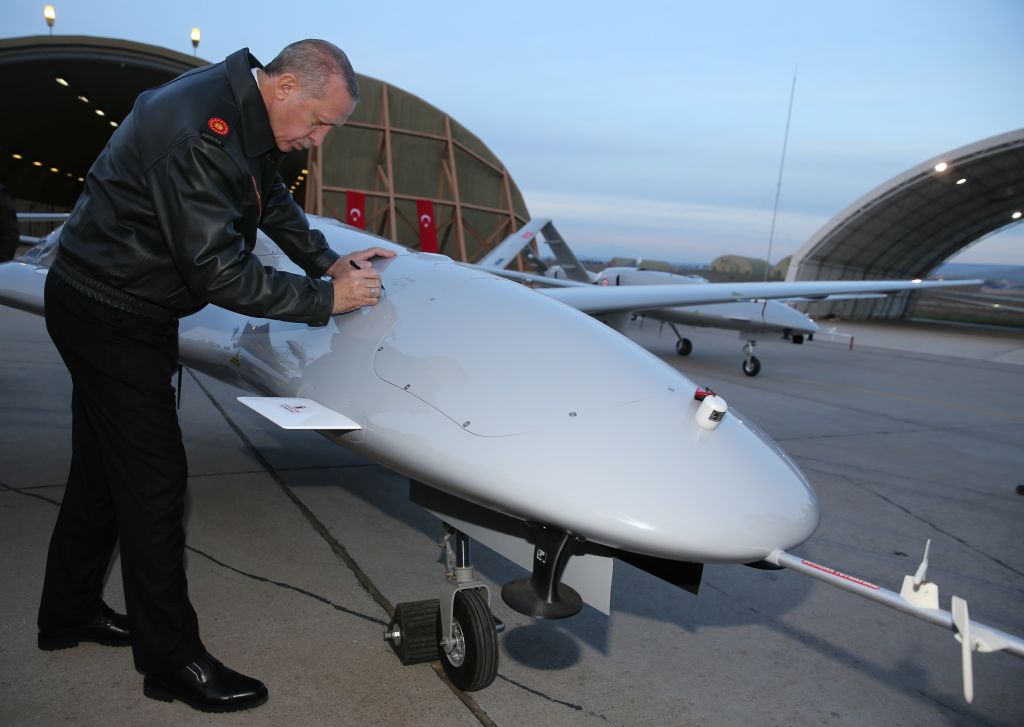
As NATO has pulled together in opposition to Russia’s invasion of Ukraine, Turkey, the ‘black sheep’ of the family, remains awkwardly straddled between its roles as Europe’s ally and antagonist.
In recent weeks, Turkish state banks have become the latest to suspend the use of Russia’s Mir payment system, just a month after Finance Minister Nureddin Nebati raised eyebrows by dismissing warnings of sanctions over Turkey’s continued business with Russia, even disdainfully labelling the West’s threat as ‘meaningless’.
While Turkey’s recent compliance is encouraging, such contemptuous rhetoric from President Recep Tayyip Erdogan’s administration has become as common as it is troubling. Erdogan has weaponised refugees to strongarm the European Union; facilitated the ethnic cleansing of Kurds; and arrested, abducted and tortured countless political opponents. He has, unsurprisingly, little affection for the West.
However, by fixating on Erdogan’s relationship with Russian President Vladimir Putin during his war in Ukraine, we have neglected Turkey’s involvement in another tragedy that epitomises its uncomfortable fit within NATO: Ankara’s drone sales to Ethiopia.
The Telegraph has labelled the conflict in Ethiopia’s Tigray region as the ‘Great War of Africa’ and the ‘deadliest war in the world’. It is on track to be the bloodiest and most costly conflict of the new millennium, yet it has failed to grab major headlines.
Clashes in late August between the Ethiopian National Defence Force (ENDF) and the militant Tigray People’s Liberation Front (TPLF) in Ethiopia’s northern regions reignited a two-year civil war that has seen horrific crimes committed by both sides.
At least half a million Ethiopians have been killed and millions more displaced. These figures, which already dwarf the human cost in Ukraine, don’t include the cost of the war’s agricultural devastation during a severe drought, which the World Bank estimates will plunge 70 million East Africans into famine by next July.
Disturbingly, Ethiopian Prime Minister Abiy Ahmed—a former Nobel Peace Prize winner—has morphed from Africa’s democratic darling into a repressive and autocratic warmonger.
Worse still, Abiy has equipped his forces with fleets of armed drones from international suppliers, including the United Arab Emirates, China and Iran. Since last November, however, when it finalised a security pact with Erdogan, the ENDF has been turbocharging its drone fleet with Turkish Bayraktar TB2s—a platform so cheap, reliable and popular it has been called ‘the Toyota Corolla of drones’.
The use of these drones has fundamentally changed the strategic calculus underpinning both sides’ behaviour, threatening to push any potential peace deal out of reach. The damage they have wrought throughout Tigray prompted UN High Commissioner for Human Rights Volker Türk to issue a statement last week describing the toll on civilians as ‘utterly staggering’.
First, the use of armed drones undermines one of the key forces motivating a resolution to any conflict: cost aversion. Drones will likely not permit a Clausewitzian culminating victory over the TPLF, particularly given their guerrilla tactics. However, they do allow Abiy to score cheap, regular tactical victories, reducing the incentive for negotiations while forcing his insurgent opponents deeper underground. Tragically, the inevitable terrorist retaliations will likely target Ethiopian civilians as much as ENDF personnel.
In addition, given both the TB2’s range and the TPLF’s inability to counter aerial vehicles, previously salient borders between TPLF-controlled and ENDF-controlled territories are becoming blurred. No longer safe within Tigray, TPLF fighters are encouraged to move into neighbouring regions such as Amhara, widening the conflict’s zone of devastation while Eritrea, Somalia and Sudan contribute greater resources to the war.
ENDF drone strikes have already prevented aid providers from providing much-needed food, water and medical services to victims of the violence, famine and human rights abuses, compounding the crisis and pushing East Africa closer to the point of no return.
There are arguments both for and against launching a full-scale intervention in Ethiopia, led by the United Nations, the United States or others. However, there’s no excuse to sit by while Ethiopians are devasted by advanced military technologies sold by despotic human rights abusers, particularly when they target peacekeepers and aid providers.
Turkey’s recent suspension of the Mir payment system in the face of Western sanctions suggests that the confluence of Ankara’s precarious economic situation and Erdogan’s own political vulnerabilities might motivate NATO’s black sheep to move a little closer to the flock. If Erdogan demands customers for Turkish drones, Western-allied states could arrange to purchase more TB2s. NATO could kill two birds with one stone by arming Eastern European militaries with drones already proven against Russian armour, while keeping them out of the hands of the developing world’s autocrats.
Given the widespread atrocities in Ethiopia, the West can’t give full moral support either to Abiy’s regime or to the TPLF. It can, however, support the millions of innocent people trapped in this conflict zone by addressing the impact of Turkey’s drones.
More than just military platforms, Erdogan is exporting instability throughout the developing world—sales from which Turkey is profiting handsomely.
Erdogan’s drones would surely be better used to uphold security in Ukraine than to undermine it in Ethiopia. As the bodies in Tigray pile higher and higher, so too does our obligation to act.

